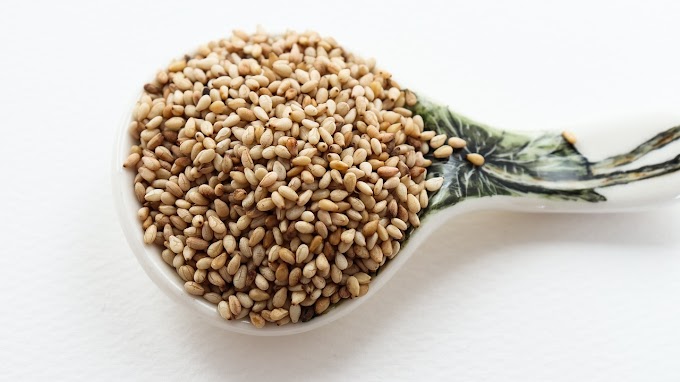Menstrual Health and Hormonal Balance
Introduction
Embarking on an insightful exploration, this comprehensive guide delves into the intricate realms of menstrual health and hormonal balance, pivotal elements that profoundly influence a woman's holistic well-being. The menstrual cycle, governed by a complex interplay of hormones, not only serves as a biological marker but also reflects the intricate dance of reproductive processes. This extensive discussion aims to unravel the layers of the menstrual cycle, shed light on factors impacting hormonal equilibrium, and equip women with practical insights to take command of their health. |
| Menstrual Health |
I. Menstrual Cycle: A Symphony of Hormones
A. The Menstrual Cycle Unveiled:The menstrual cycle unfolds over approximately 28 days, orchestrated by the dynamic interaction of hormones, primarily estrogen and progesterone. Understanding the nuances of each phase provides a foundation for comprehending the intricacies of reproductive health.
Menstruation: Spanning 3-7 days, menstruation marks the initiation of the cycle, signifying the shedding of the uterine lining.
This phase serves as a reset, paving the way for subsequent hormonal shifts.
Follicular Phase: Post-menstruation, the follicular phase commences with the follicle-stimulating hormone (FSH) release.
Ovaries respond by nurturing follicles containing eggs, setting the stage for ovulation.
Ovulation: Around the 14th day, a mature egg is released, marking the pinnacle of fertility.
Ovulation is a crucial aspect of family planning and reproductive health awareness.
Luteal Phase: Post-ovulation, the ruptured follicle transforms into the corpus luteum, producing progesterone.
Progesterone readies the uterus for potential pregnancy, completing the intricate menstrual dance.
Diet and Nutrition: A balanced diet with nutrients, vitamins, and minerals plays a pivotal role in hormonal regulation.
Focusing on foods that support hormone production, such as healthy fats and fiber, positively influences menstrual well-being.
Physical Activity: Regular exercise serves as a cornerstone for hormonal regulation and overall menstrual health.
However, extremes in exercise intensity can lead to irregular periods and hormonal imbalances, emphasizing the need for moderation.
Stress Management: Stress disrupts hormone production, exerting an influence on the regularity of the menstrual cycle.
Incorporating stress-reducing practices like meditation and yoga becomes imperative for maintaining hormonal balance.
Sleep: Adequate sleep is foundational for hormonal control.
Insufficient sleep can precipitate hormonal imbalances and irregular periods, underscoring the importance of prioritizing quality rest.
A. Polycystic Ovary Syndrome (PCOS): PCOS, a hormonal disorder, manifests with enlarged ovaries and cysts, impacting menstrual regularity, weight, and fertility.
Medical intervention is crucial to address the complexities associated with PCOS.
B. Endometriosis: Endometriosis, characterized by uterine tissue growing outside the uterus, leads to severe pelvic pain, heavy periods, and fertility challenges.
Managing endometriosis involves a multidisciplinary approach, encompassing medical, surgical, and holistic interventions.
C. Premenstrual Syndrome (PMS): PMS encompasses a spectrum of physical and emotional symptoms preceding menstruation.
Recognizing and addressing PMS symptoms is vital for enhancing the overall quality of life.
A. Balanced Diet: Embracing a diet rich in fruits, vegetables, whole grains, and lean proteins is essential.
Mitigating the consumption of excessive sugar and processed foods contributes to sustained hormonal balance.
B. Regular Exercise: Moderate, consistent physical activity promotes hormonal regulation and overall menstrual health.
Tailoring exercise routines to individual needs fosters a sustainable and holistic approach to well-being.
C. Stress Reduction: Integrating stress-reducing techniques such as meditation and deep breathing into daily life is transformative.
Mindfulness practices mitigate cortisol levels, promoting sustained hormonal equilibrium.
D. Sufficient Sleep: Prioritizing 7-9 hours of quality sleep daily is foundational for optimal hormonal functioning.
Implementing sleep hygiene practices fosters a conducive environment for restorative sleep.
This phase serves as a reset, paving the way for subsequent hormonal shifts.
Follicular Phase: Post-menstruation, the follicular phase commences with the follicle-stimulating hormone (FSH) release.
Ovaries respond by nurturing follicles containing eggs, setting the stage for ovulation.
Ovulation: Around the 14th day, a mature egg is released, marking the pinnacle of fertility.
Ovulation is a crucial aspect of family planning and reproductive health awareness.
Luteal Phase: Post-ovulation, the ruptured follicle transforms into the corpus luteum, producing progesterone.
Progesterone readies the uterus for potential pregnancy, completing the intricate menstrual dance.
B. Influential Factors on Menstrual Well-being:
To navigate the labyrinth of women's health effectively, it is imperative to recognize the factors that can impact menstrual health and hormonal equilibrium.Diet and Nutrition: A balanced diet with nutrients, vitamins, and minerals plays a pivotal role in hormonal regulation.
Focusing on foods that support hormone production, such as healthy fats and fiber, positively influences menstrual well-being.
Physical Activity: Regular exercise serves as a cornerstone for hormonal regulation and overall menstrual health.
However, extremes in exercise intensity can lead to irregular periods and hormonal imbalances, emphasizing the need for moderation.
Stress Management: Stress disrupts hormone production, exerting an influence on the regularity of the menstrual cycle.
Incorporating stress-reducing practices like meditation and yoga becomes imperative for maintaining hormonal balance.
Sleep: Adequate sleep is foundational for hormonal control.
Insufficient sleep can precipitate hormonal imbalances and irregular periods, underscoring the importance of prioritizing quality rest.
II. Navigating Menstrual Disorders: Challenges and Solutions
Despite the natural rhythm of menstruation, some women encounter menstrual disorders, demanding attention and proactive management.A. Polycystic Ovary Syndrome (PCOS): PCOS, a hormonal disorder, manifests with enlarged ovaries and cysts, impacting menstrual regularity, weight, and fertility.
Medical intervention is crucial to address the complexities associated with PCOS.
B. Endometriosis: Endometriosis, characterized by uterine tissue growing outside the uterus, leads to severe pelvic pain, heavy periods, and fertility challenges.
Managing endometriosis involves a multidisciplinary approach, encompassing medical, surgical, and holistic interventions.
C. Premenstrual Syndrome (PMS): PMS encompasses a spectrum of physical and emotional symptoms preceding menstruation.
Recognizing and addressing PMS symptoms is vital for enhancing the overall quality of life.
III. Tips for Harmonious Living: Nurturing Well-being Through Lifestyle Choices
Maintaining hormonal balance is not merely a medical pursuit but a lifestyle commitment. Incorporating healthy choices can significantly contribute to hormonal equilibrium.A. Balanced Diet: Embracing a diet rich in fruits, vegetables, whole grains, and lean proteins is essential.
Mitigating the consumption of excessive sugar and processed foods contributes to sustained hormonal balance.
B. Regular Exercise: Moderate, consistent physical activity promotes hormonal regulation and overall menstrual health.
Tailoring exercise routines to individual needs fosters a sustainable and holistic approach to well-being.
C. Stress Reduction: Integrating stress-reducing techniques such as meditation and deep breathing into daily life is transformative.
Mindfulness practices mitigate cortisol levels, promoting sustained hormonal equilibrium.
D. Sufficient Sleep: Prioritizing 7-9 hours of quality sleep daily is foundational for optimal hormonal functioning.
Implementing sleep hygiene practices fosters a conducive environment for restorative sleep.

IV. Holistic Approaches and Emerging Trends: Navigating the Future of Women's Health
A. Environmental Considerations: Exploring the impact of chemical exposures and endocrine-disrupting substances on hormonal balance broadens the perspective on women's health.Advocating for environmental awareness and sustainable practices is instrumental in fostering long-term reproductive health.
B. Emerging Trends and Personalized Approaches: Delving into the evolving landscape of personalized medicine highlights tailored approaches to women's unique hormonal and reproductive health needs.
Technology integration, including menstrual cycle tracking apps and hormonal profiling, offers novel avenues for proactive health management.
C. Alternative Therapies: Evaluating the efficacy of alternative therapies, such as herbal supplements, acupuncture, and reflexology, sheds light on complementary modalities supporting hormonal equilibrium.
Embracing a holistic approach, combining conventional and alternative interventions, opens avenues for comprehensive women's health care.
Conclusion:
In conclusion, this extensive exploration underscores the profound significance of menstrual health and hormonal balance in the tapestry of women's lives. Armed with a deeper understanding of the menstrual cycle, awareness of influencing factors, and practical tips for well-being, women can navigate their reproductive journey with empowerment and confidence. This guide serves as a beacon, not only unraveling the complexities of women's health but also providing a roadmap for embracing a balanced and fulfilling life. As we step into the future, integrating emerging trends, personalized approaches, and holistic care ensures that women are equipped to flourish in every phase of their reproductive health journey.FAQ's
Q1: What is the menstrual cycle, and why is it essential for women's health?A1: The menstrual cycle is a natural, recurring process in women of reproductive age, typically lasting around 28 days. It involves hormonal changes orchestrated by estrogen and progesterone, impacting various stages from menstruation to ovulation and beyond. Understanding the menstrual cycle is crucial for monitoring reproductive health and fertility.
Q2: How does diet influence hormonal balance and menstrual well-being?
A2: Diet plays a pivotal role in hormonal regulation. Consuming a balanced diet rich in nutrients, vitamins, and minerals supports hormone production. Foods like healthy fats and fiber can positively impact menstrual well-being. Conversely, excessive sugar and processed foods can disrupt hormonal balance.
Q3: Can excessive exercise affect menstrual health?
A3: Yes, excessive exercise or intense training can impact menstrual health. While regular, moderate exercise is beneficial for hormonal regulation, extremes can lead to irregular periods or hormonal imbalances. Finding a balance in physical activity is essential for overall well-being.
Q4: How does stress affect hormonal balance and the menstrual cycle?
A4: Stress can disrupt hormone production, affecting the regularity of the menstrual cycle. Elevated stress levels may lead to hormonal imbalances. Incorporating stress-reducing practices such as meditation, yoga, or deep breathing can be effective in managing cortisol levels and promoting hormonal balance.
Q5: What are some common menstrual disorders, and how are they managed?
A5: Common menstrual disorders include Polycystic Ovary Syndrome (PCOS), endometriosis, and Premenstrual Syndrome (PMS). PCOS may require medical intervention for hormonal regulation. Endometriosis management involves a multidisciplinary approach, including medical and surgical options. PMS symptoms can be addressed through lifestyle modifications and, in some cases, medication.
Q6: How can women promote hormonal balance through lifestyle choices?
A6: Maintaining hormonal balance involves adopting a holistic approach to well-being. Embracing a balanced diet, engaging in regular exercise, managing stress through mindfulness practices, and ensuring sufficient sleep are key lifestyle choices that contribute to hormonal equilibrium.
Q7: Are there emerging trends or personalized approaches in women's health?
A7: Yes, emerging trends in women's health include personalized medicine tailored to individual hormonal and reproductive needs. Technology integration, such as menstrual cycle tracking apps and hormonal profiling, offers novel approaches for proactive health management.
Q8: What role do alternative therapies play in supporting hormonal equilibrium?
A8: Alternative therapies, including herbal supplements, acupuncture, and reflexology, can contribute to supporting hormonal equilibrium. These complementary modalities, when integrated with conventional healthcare, offer holistic approaches to women's health.
Q9: How can environmental factors impact hormonal balance?
A9: Prolonged exposure to environmental pollutants, chemicals, and endocrine-disrupting substances can impact hormonal balance. Advocacy for environmental awareness and sustainable practices is essential for promoting long-term reproductive health.
Q10: How can women navigate their reproductive health journey with confidence?
A10: Understanding the menstrual cycle, being aware of influencing factors, adopting healthy lifestyle choices, and staying informed about emerging trends empower women to navigate their reproductive health journey with confidence. Regular check-ups and open communication with healthcare providers are also crucial for comprehensive well-being.







